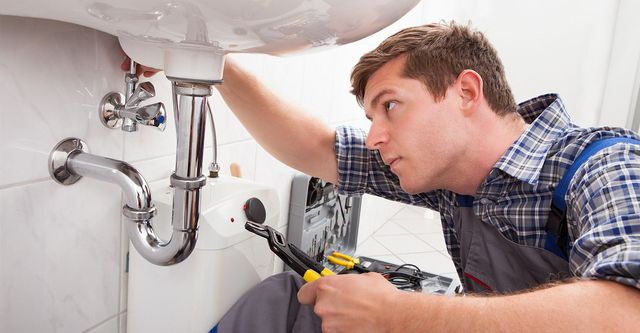Choosing the Right Plumber: What You Need to Know
When it comes to plumbing issues in your home, choosing the right plumber can make all the difference. Here are some key factors to consider when looking for a plumber in the United States.
Licensing and Certification
First and foremost, make sure the plumber you're considering is licensed. In the US, licensing requirements vary by state, but a licensed plumber has met certain standards of knowledge and skill. You can usually verify a plumber's license by checking with your state's licensing board. Additionally, look for plumbers who have relevant certifications. For example, a plumber certified in green plumbing techniques may be able to offer more energy - efficient solutions for your home. Certification shows that the plumber has gone the extra mile to stay updated on the latest industry practices.
Experience and Reputation
Experience matters a great deal in the plumbing field. A plumber who has been in business for many years is likely to have encountered a wide range of problems and will be better equipped to handle yours. You can ask the plumber about their years of experience and the types of jobs they've worked on. Checking their reputation is also crucial. Read online reviews on platforms like Yelp, Google Reviews, or Angie's List. Positive reviews from satisfied customers are a good sign. You can also ask the plumber for references and contact previous clients to get an idea of their work quality, professionalism, and reliability.
Insurance Coverage
Insurance is non - negotiable when it comes to hiring a plumber. A plumber should have liability insurance, which protects you in case they cause damage to your property during the job. For instance, if a plumber accidentally damages a wall while installing a new pipe, their liability insurance will cover the cost of repairs. Workers' compensation insurance is also important. If a plumber gets injured while working in your home, workers' compensation ensures that they are covered for medical expenses and lost wages, without you being held liable.
Services Offered
Different plumbers may offer different services. Some may specialize in residential plumbing, while others focus on commercial work. Some may be experts in new installations, while others excel in repairs and maintenance. Make sure the plumber you choose offers the specific services you need. For example, if you're planning a bathroom remodel and need to install new plumbing fixtures, look for a plumber with experience in fixture installation. If you have an emergency plumbing situation, such as a burst pipe, check if the plumber offers 24/7 emergency services.
Cost and Estimates
Cost is an important consideration, but it shouldn't be the only factor. Get estimates from multiple plumbers before making a decision. A reliable plumber will provide a detailed estimate that includes the cost of labor, materials, and any additional fees. Be wary of plumbers who give vague or overly low estimates, as this could be a sign of subpar work or hidden costs. Some plumbers charge an hourly rate, while others may offer a flat - rate for certain jobs. Make sure you understand how the cost is calculated and if there are any warranties or guarantees on the work.
Communication and Customer Service
Good communication is essential. A plumber should be able to explain the problem to you clearly, along with the proposed solution and the expected timeline for completion. They should also be responsive to your calls and emails. If a plumber is difficult to reach or ignores your inquiries, it's a red flag. Professionalism and good customer service go a long way. A plumber who respects your property, shows up on time, and cleans up after the job is more likely to provide a positive experience.
In summary, choosing the right plumber requires careful consideration of multiple factors. By doing your research and asking the right questions, you can find a plumber who will provide high - quality service and solve your plumbing problems effectively.
